Are you considering renewing your lease agreement but feeling a bit overwhelmed by the terms and conditions? You're not aloneâmany renters encounter the same confusion when it comes to navigating leases. Understanding the ins and outs of renewal terms can be crucial for ensuring a smooth transition into your next term. Dive in to discover insightful tips and essential points to consider before signing on the dotted line!
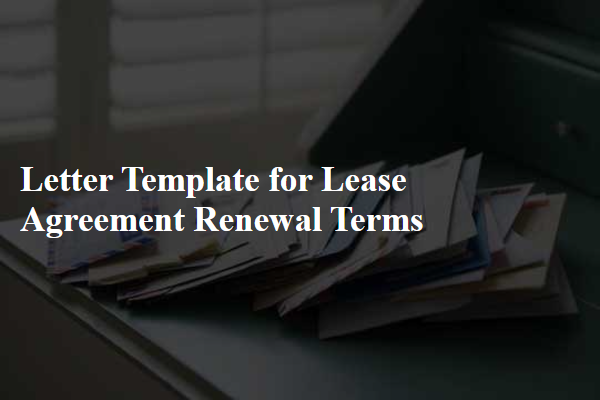
Lease Duration and Renewal Period
Lease agreements typically stipulate a specified duration, often ranging from one year to multi-year terms. Upon completion of the initial lease period, a renewal option may be provided, allowing tenants to extend their stay under predetermined conditions. Commonly, landlords may offer a renewal period of six months to one year. The terms may include rental adjustments based on local market rates, typically reviewed annually. It is crucial for both parties to discuss renewal intentions at least 30-60 days before the lease expiration. Consideration of security deposit terms, maintenance responsibilities, and property condition upon renewal can also play significant roles in these negotiations.
Rent Payments and Adjustments
The lease agreement renewal terms specify essential aspects concerning rent payments and adjustments, which typically involve fixed amounts or percentage changes. The current rental amount of $1,200 per month, established in the original lease for a one-bedroom apartment in downtown Chicago, may face an adjustment based on market conditions or inflation rates. Typically, adjustments in rent may occur annually, with increases capped at 3%-5%, depending on local laws and regulations. Any proposed changes will be communicated in writing at least 30 days prior to the renewal date, allowing tenants adequate time to review adjustments. Timely rent payments must continue to be made on the first of each month, utilizing accepted methods, such as online transfer or checks, ensuring continued occupancy and compliance with lease stipulations.
Maintenance and Repair Responsibilities
In a lease agreement renewal, maintenance and repair responsibilities are critical for ensuring the property remains in optimal condition. Landlords typically outline specific duties concerning property upkeep, such as interior repairs (including plumbing and electrical systems) and lawn maintenance, while tenants might be responsible for general cleanliness and minor repairs. Tenants should adhere to local housing codes (such as the International Property Maintenance Code) to prevent potential violations. Detailed procedures for reporting issues, including time frames for response and the notification process, are essential to foster transparent communication. Landlords may also delineate responsibilities for winterizing systems in colder climates, such as heating units and pipes, to avoid damage from freezing temperatures below -5 degrees Celsius. Clear stipulations can minimize disputes and enhance the overall living experience in the rental property.
Security Deposit Terms
The security deposit amount for the lease agreement renewal will remain at $1,000, providing the tenant with assurance against damages or unpaid rent. This deposit, following state regulations (such as those outlined in California Civil Code Section 1950.5), is refundable within 21 days after lease termination, assuming no deductions. Deductions may arise from cleaning costs or repairs exceeding normal wear and tear, documented during the final inspection. Tenants must communicate any grievances regarding the final accounting within 7 days of receipt, ensuring transparency in the handling of their deposit. The established timeline promotes clarity and upholds the trust inherent in landlord-tenant relationships.
Tenant and Landlord Contact Information
The lease renewal agreement outlines important contact information for the tenant and landlord involved in the rental property arrangement. The tenant's details must include full name, phone number, and email address to facilitate communication regarding lease terms and property maintenance. The landlord's information should encompass the name of the property owner or property management company, along with a mailing address, phone number, and email address for inquiries and notifications related to the lease renewal. Accurate and updated contact information is crucial for effective correspondence throughout the leasing period.

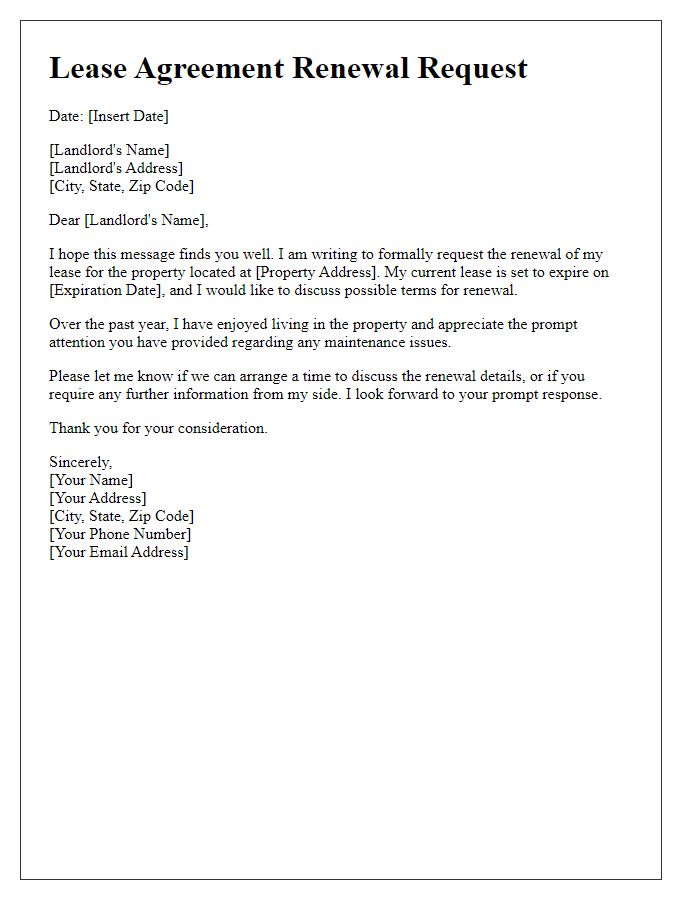
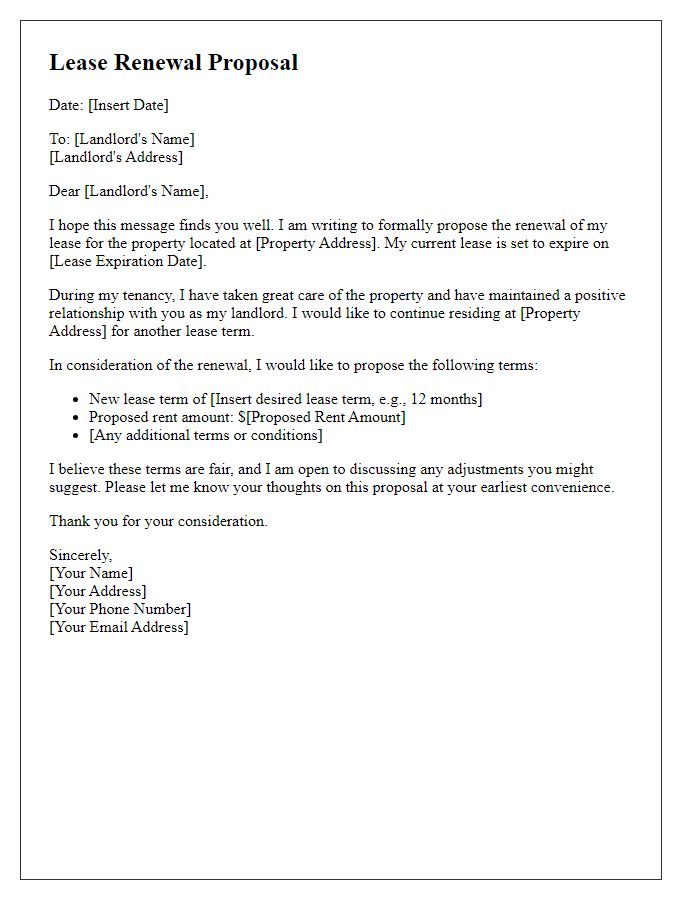
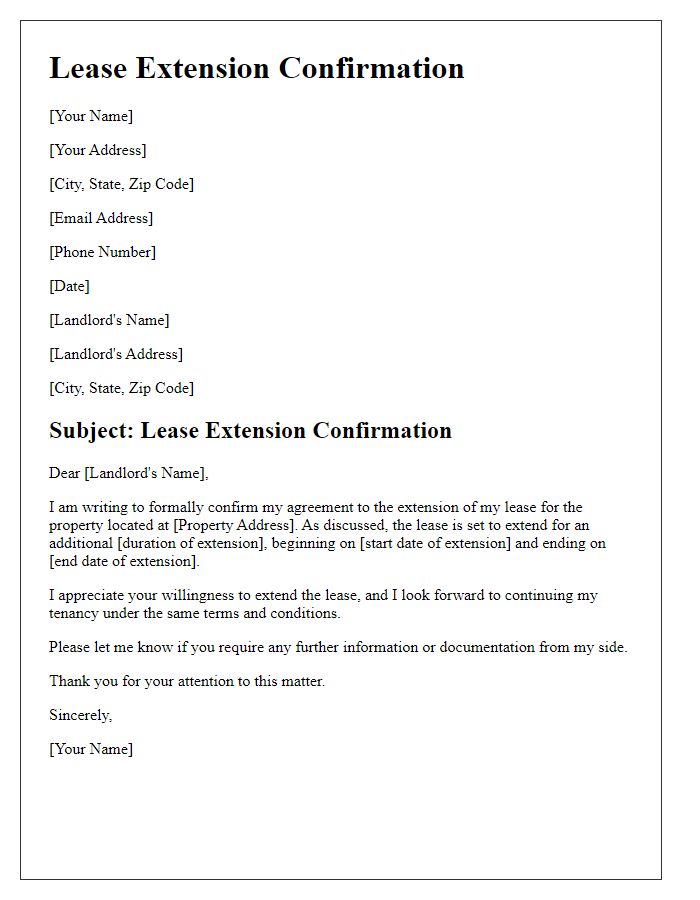
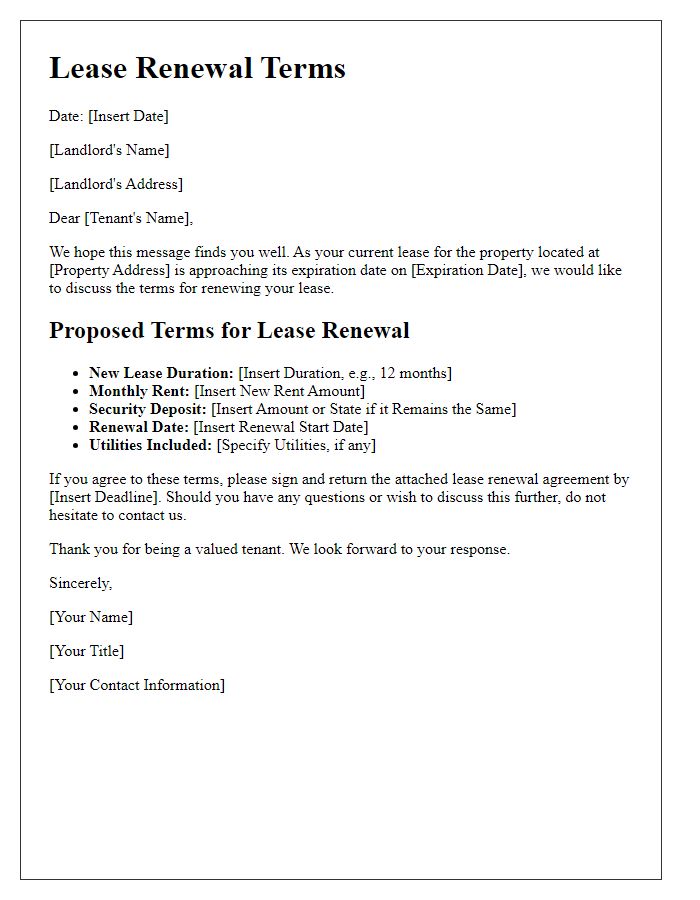
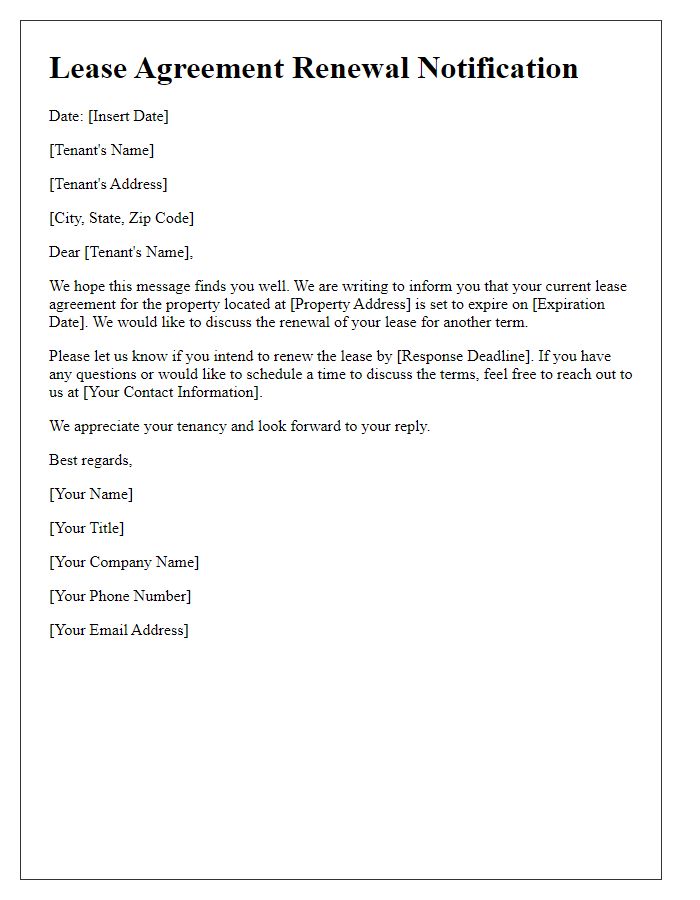
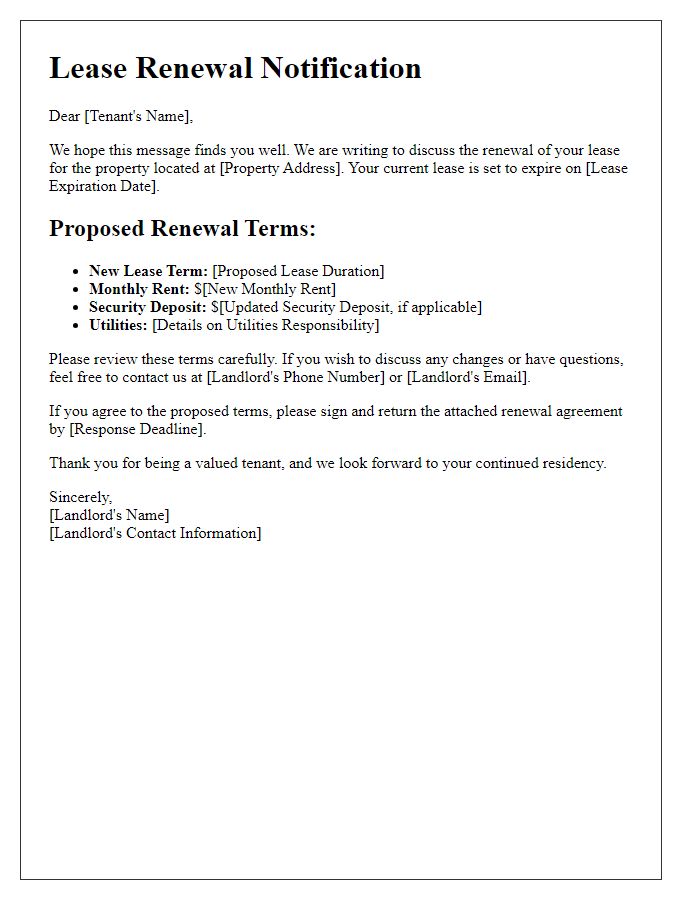
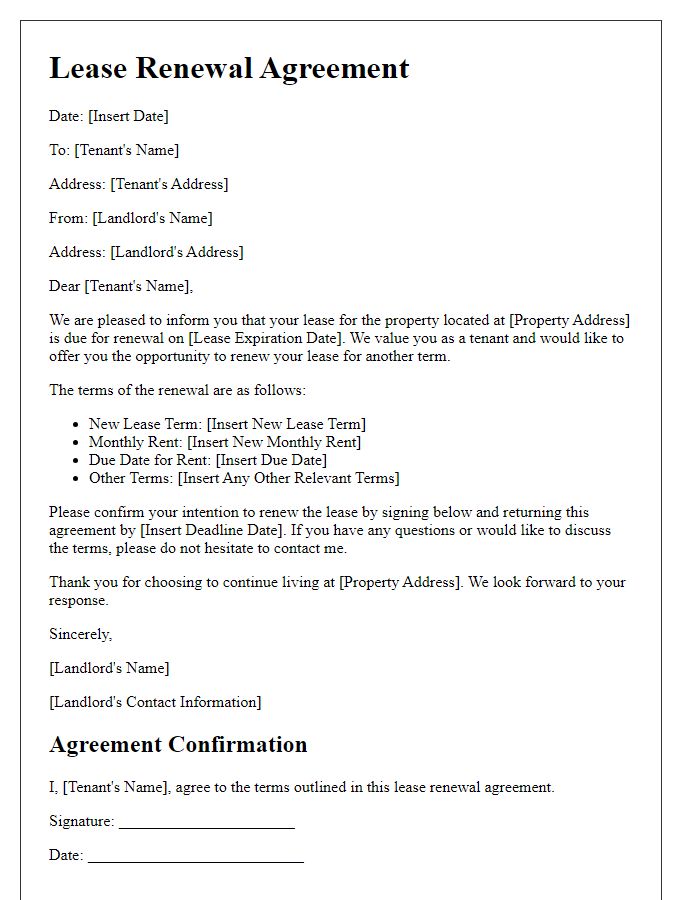
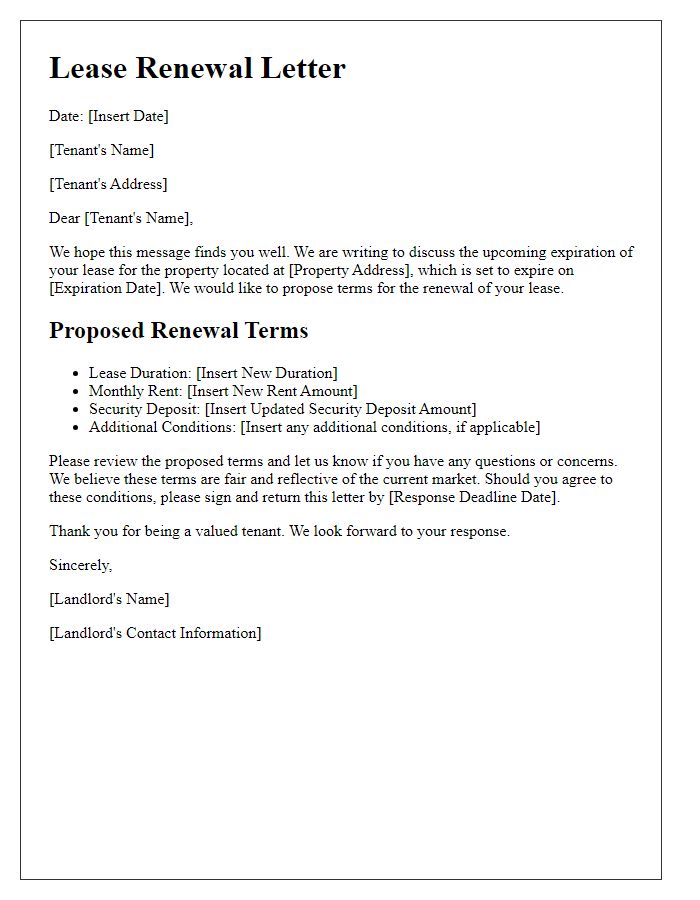
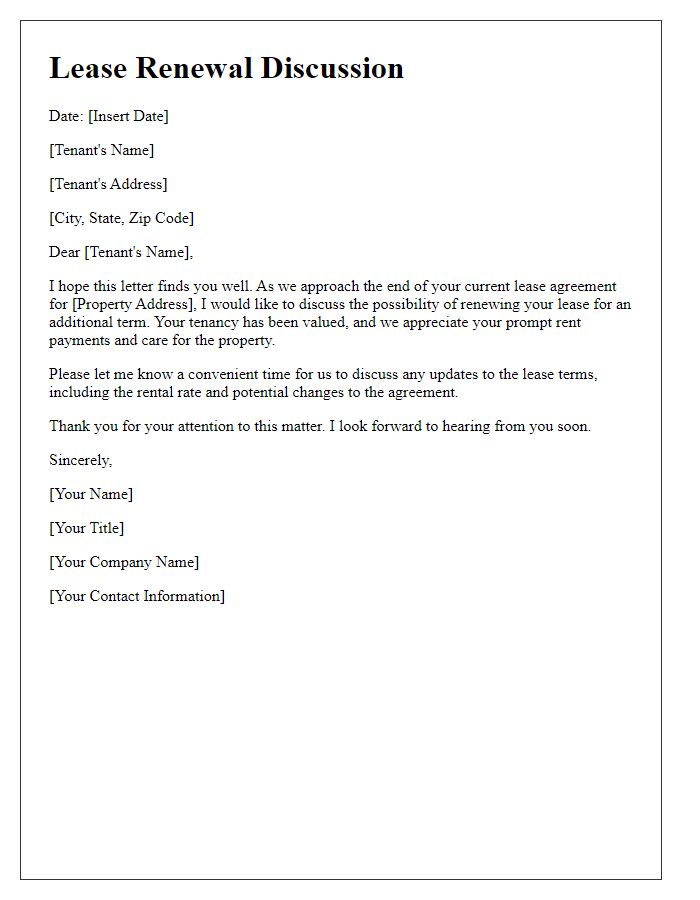
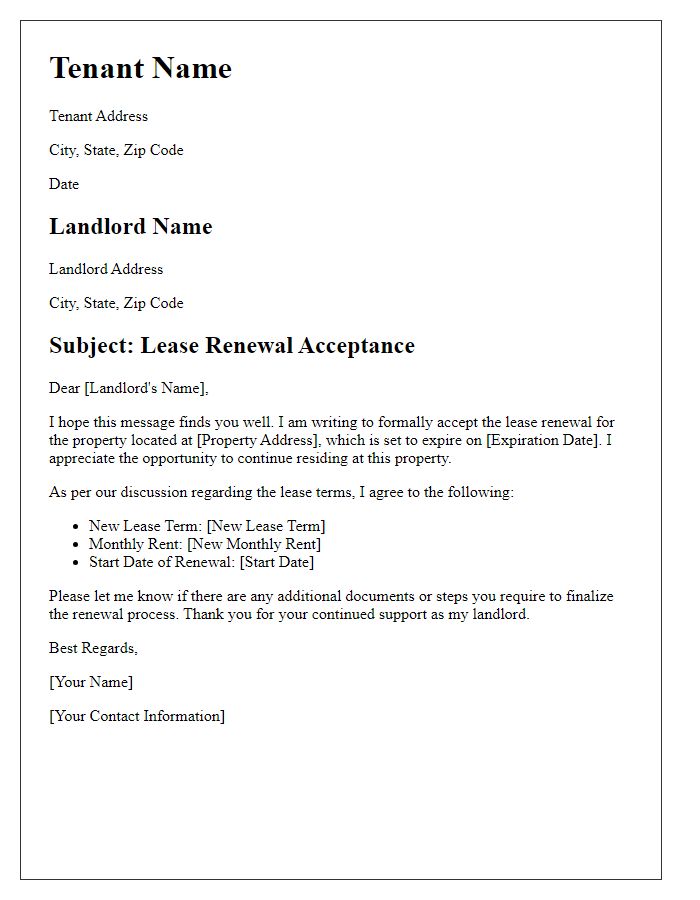

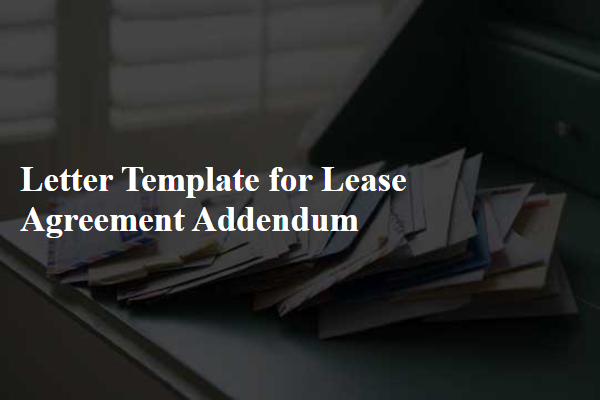
Comments